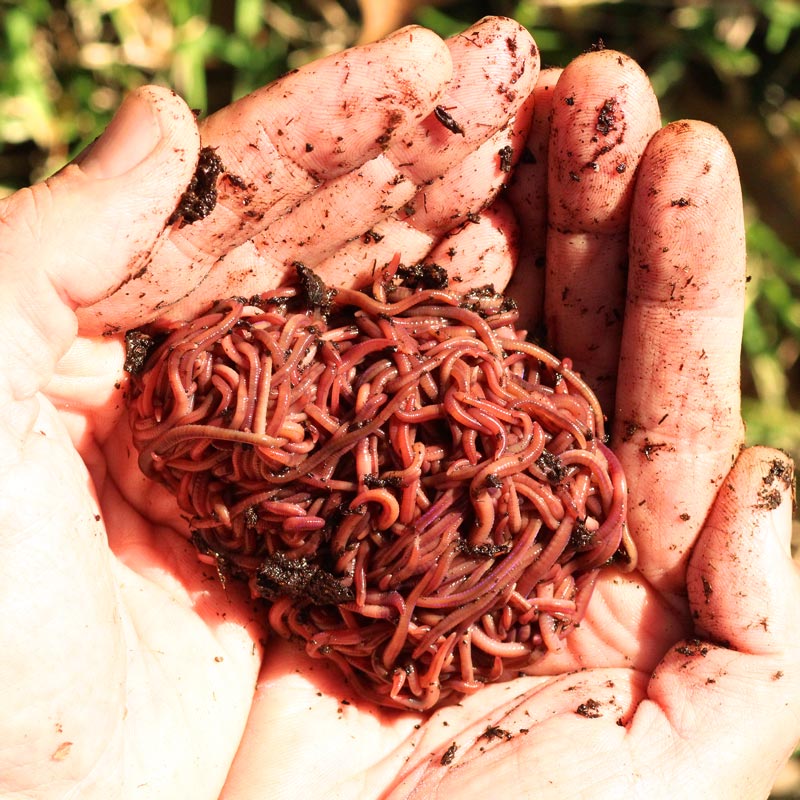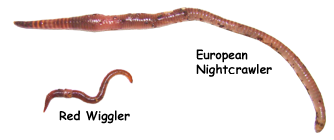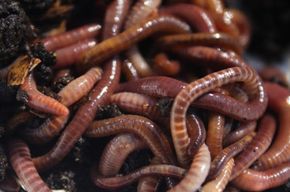Organic Composting with Red Wiggler Worms - Boost Your Yard's Growth
Organic Composting with Red Wiggler Worms - Boost Your Yard's Growth
Blog Article
Red Wiggler Worms Demystified: Opening the Tricks of Vermiculture for Greener Living and Nutrient-Rich Soil
In the realm of sustainable practices for enriching dirt high quality and advertising eco-conscious living, red wiggler worms play an essential yet frequently ignored function. These humble creatures have the impressive capacity to transform organic waste into nutrient-rich castings that work as a potent all-natural fertilizer. By diving right into the globe of vermiculture, one can uncover a huge selection of advantages that prolong much beyond traditional composting techniques. Understanding the details of taking care of these worms, maximizing their setting, and utilizing their spreadings can bring about a greener lifestyle and much healthier dirt for plants to thrive.
The Duty of Red Wiggler Worms
Red Wiggler worms play a crucial role in composting systems by successfully breaking down raw material right into nutrient-rich spreadings. These starved eaters take in a variety of natural products, such as kitchen scraps, yard waste, and paper items. As they feed, the worms' digestion procedures damage down the raw material into a fine, dark, and nutrient-dense product known as worm spreadings or vermicompost.
The castings produced by Red Wiggler worms are very advantageous for dirt wellness and plant development. They are rich in necessary nutrients like potassium, phosphorus, and nitrogen, which are essential for supporting healthy and balanced plant growth. In addition, worm castings include advantageous microorganisms and enzymes that assist improve dirt framework, increase water retention, and enhance nutrient uptake by plants.
Advantages of Vermicomposting

It improves dirt structure, enhances soil aeration, and raises soil dampness retention. Vermicompost likewise enhances the soil with important nutrients like phosphorus, nitrogen, and potassium, advertising plant growth and general soil fertility.
Furthermore, vermicomposting assistances sustainable horticulture methods by supplying a all-natural and chemical-free alternative to artificial fertilizers. Red Wiggler Worms. This eco friendly method not only enriches the soil however additionally helps in reducing reliance on harmful chemicals, advertising a greener and extra sustainable means of horticulture
Establishing Up a Worm Container
When establishing a worm container for vermicomposting, proper setup is crucial to make sure the success of the composting process. The primary step in setting up a worm container is picking an appropriate container. This can be a plastic bin or wood box that supplies adequate area for the worms to walk around and has correct drain holes to prevent waterlogging. Next off, a bed linen material such as shredded paper, cardboard, or coconut coir need to be included to the container. This bed linens offers a comfy setting for the worms and link assists maintain wetness degrees.
After including the bed linen, present the red wiggler worms to the bin. It is advised to begin with a small number of worms and slowly increase as they multiply. The worms must after that be supplied with food scraps such as vegetables and fruit peels, coffee premises, and eggshells. It is crucial to prevent adding meat, dairy products, oily, or salty foods to stop attracting parasites and producing undesirable odors.
Frequently keep an eye on the dampness levels and temperature in the worm container to guarantee ideal problems for the worms. With correct arrangement and upkeep, the worm bin will efficiently transform organic waste into nutrient-rich garden compost for your plants and yard.
Collecting Worm Spreadings
To successfully collect nutrient-rich worm castings from your vermicomposting system, a systematic harvesting approach is crucial. There are a few essential actions to comply with to ensure an effective process when it comes time to gather the worm castings. Quit including fresh food scraps to one side of the worm container for a couple of weeks before collecting. This motivates the worms to move sideways with fresh bed linen and food, making it less complicated to scoop out the spreadings from the opposite.

Troubleshooting Common Issues
Recognizing and dealing with usual challenges that may arise during the vermicomposting process is critical for preserving a healthy and balanced and efficient worm container. One typical issue that vermicomposters encounter is overfeeding. Adding excess food scraps can cause a build-up of moisture and acidity in the worm click this link bin, potentially hurting the worms. To prevent this, feed the worms in moderation, making sure that the food scraps are sufficiently broken down before adding a lot more. An additional problem is unpleasant smells rising from the worm container. Foul smells show anaerobic conditions, commonly triggered by overwatering or insufficient air flow. To correct this, change the moisture degrees by including dry bedding products like shredded newspaper or cardboard and rise aeration by turning the bed linens regularly.
Additionally, if the worm populace is declining or the worms show up undesirable, it can be as a result of ecological stress factors such as extreme temperature levels or pH levels. Keeping an eye on these aspects and making needed changes is crucial for the health of the worms. By troubleshooting these usual issues without delay, vermicomposters can ensure a smooth and effective vermicomposting procedure while maintaining a prospering worm population.

Final Thought
Finally, red wiggler worms play an important duty in vermiculture by damaging down natural matter right into nutrient-rich dirt. The advantages of vermiculture consist of greener living and improved soil quality. Establishing a worm bin is vital for successful vermiculture, and harvesting worm spreadings offers valuable compost for gardening. By recognizing and browse around this site fixing usual concerns, individuals can unlock the secrets of vermiculture for sustainable living and much healthier soil.
As they feed, the worms' digestive system procedures break down the natural matter right into a penalty, dark, and nutrient-dense product understood as worm castings or vermicompost.
The spreadings generated by Red Wiggler worms are very beneficial for dirt health and plant development. Adding excess food scraps can lead to a buildup of moisture and level of acidity in the worm container, potentially hurting the worms.In addition, if the worm populace is declining or the worms show up harmful, it can be due to ecological stressors such as extreme temperature levels or pH degrees. Setting up a worm container is necessary for successful vermiculture, and harvesting worm castings offers valuable garden compost for gardening.
Report this page